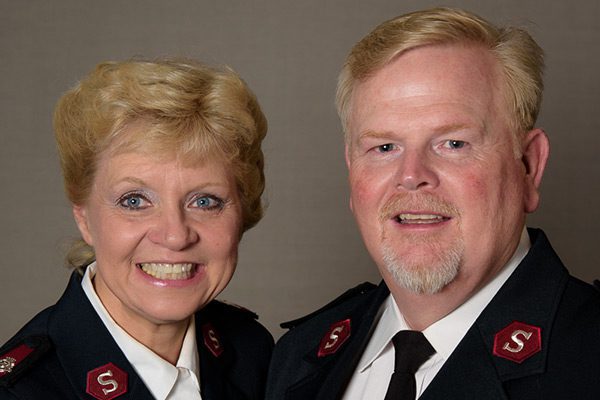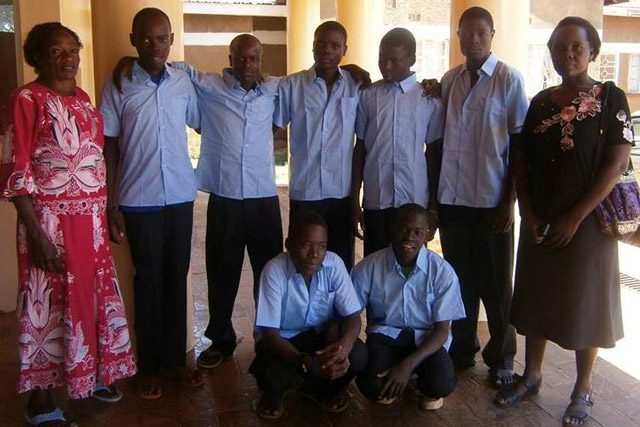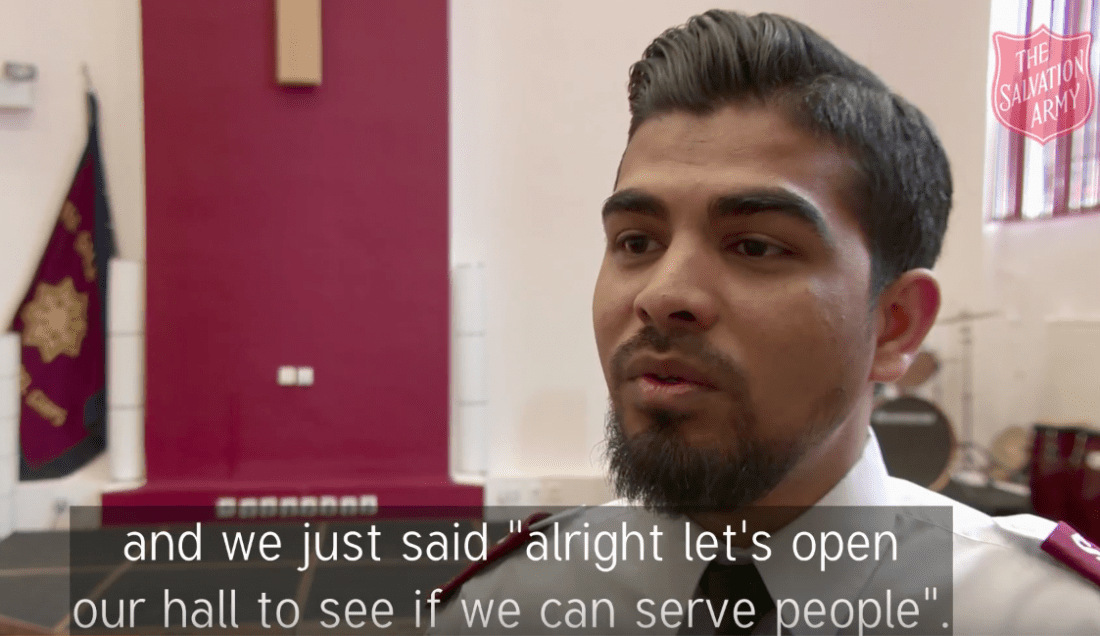 Western Territory officers Majors Don and Ronda Gilger arrived in Moldova, part of The Salvation Army’s Eastern Europe Territory (EET), in time to assume responsibilities Oct. 7 as territorial secretary for business administration and divisional commander to Moldova Division, respectively.
Western Territory officers Majors Don and Ronda Gilger arrived in Moldova, part of The Salvation Army’s Eastern Europe Territory (EET), in time to assume responsibilities Oct. 7 as territorial secretary for business administration and divisional commander to Moldova Division, respectively.
They previously served at Western Territorial Headquarters, he as director of World Missions and Overseas Child Sponsorship and she as assistant program secretary for corps ministries.
Here, the Gilgers reflect on their new assignments.
How did you feel when you learned of your quick departure?
Ronda Gilger: It was a surprise that took our breath away and yet…a surprise, which to that moment was a developing “possibility.”
Just a week before Boundless [The Salvation Army’s 2015 international congress] we had been told about a request for service in Moldova. We’d prayed about it and talked about all of the ramifications for our family. Almost immediately we reached out for one another’s hands and said, “Yes—come what may.” Privately, we wrestled with the unknown, but only for a moment. It felt like obedience. But it was a faraway possibility and after four months it appeared that it was not going to develop.
And then a call changed everything.
How will you manage separate appointments—at both territorial and divisional headquarters?
RG: The Eastern Europe Territorial Headquarters moved from Moscow to Chisinau, Moldova, so while our appointments are separate, our offices are both in the city center.
This does stand as a unique appointment—a married woman serving as a divisional commander, while her husband has a territorial appointment as secretary for business. In the coming years I pray that we see this pattern repeated.
The Western Territory has been gracious as they have given much toward the building of the newly established Eastern Europe Territorial Headquarters and School for Officer’s Training. Both were dedicated the weekend we arrived, hence our speedy departure. There is a sense that we are part of a historic moment for Moldova and the EET as we are walking through many firsts in this new location.
Don Gilger: We will only work about a five minute drive apart. We will have some adjustments as Ronda is a divisional commander and I will serve on territorial staff, but we will adjust to this quickly.
 How have you prepared for your appointments?
How have you prepared for your appointments?
DG: We have been reading and learning the language for the past few weeks. With the Internet we can keep up on worldwide news in an instant. As for preparation for new appointments, we do this all the time as officers. While there are some higher hurdles to jump we will make the adjustments needed and serve the Lord wherever we are needed.
RG: I wish that I could tell you that I have a handle on the language and all of my responsibilities and roles, but the truth is a little less stellar.
Every appointment, every relationship, educational degrees, responsibilities, challenges and life lessons have been layered into how God has been preparing us. We stand in need of much grace and the Holy Spirit’s power.
We watch news, documentaries and our hearts are broken for the poverty, current issues, crises, social justice issues and economic challenges that are tearing lives apart. I have found myself in tears over life situations that most Americans never have to make a part of their dinner conversation.
And we hear stories of these amazing people who have not only survived, but who give of themselves to others in a way that makes me feel “poor in spirit.” I watch Salvation Army videos and see joy and hope-given lives changed one person at a time; with all my heart I want to be a part of that.
I want to be broken and used, and be part of giving a voice to those who might not ever use theirs.
What issues do you expect to face?
DG: Eastern Europe is a wonderful place to serve the Lord. We have received reports of the kindness of the people there. While there are issues of extreme poverty there, we will love them in Christ’s name and through the power of the Holy Spirit offer physical and spiritual renewal. Places change, but people are the same all around the world.
RG: I want to stand in country, live in country and make a better analysis of what truly are the most immediate issues facing Moldovans. Immediately, my research shows a country that has been labeled the poorest in all of Europe.
There appear to be great struggles with poverty, human trafficking, and loss of a whole generation that is doing whatever has to be done to leave—not because they desire to, but because they cannot survive if the future is a continuance of today.
Forty percent of the GNP of Moldova comes from family members working outside of the country to support their families inside the country. The World Health Organization is also working to put systems in place to halt the selling of harvested live organs that are coming out of Moldova and surrounding countries where poverty has created a desperation and on the other end of the economic spectrum—opportunity to gain.
What do I expect to find? People hurting and needing Jesus. People who love their families and their countries. And hope. Because The Salvation Army stands as a light for Christ in Moldova, tomorrow will hold more hope than today. I want to be part of that.
What has happened in Moldova and surrounding countries since the fall of the Berlin Wall (1989) and the dissolution of the USSR? What is the spiritual landscape, and how does The Salvation Army fit in?
DG: While I am not an expert in this area, it is safe to say that the former Soviet states have struggled fiscally over the past two decades. The great news is that money is not the answer to all of life’s problems and that Christ offers the real road to peace.
It seems that there is an openness to authentic and real Christianity. I will have a much better view of this after my first year of service in Eastern Europe. The Salvation Army continues to grow and serve. We have our niche and mission all over the world.
What unique skills do you bring to these appointments that will make you effective—as Westerners serving in Eastern Europe?
 DG: We bring a spirit of “can-do.” It is our love of God and his Spirit flowing through us that will make the difference. It is never about ability; it is always about availability. I have left it all behind and am pressing toward the prize (Phil. 3:12-14).
DG: We bring a spirit of “can-do.” It is our love of God and his Spirit flowing through us that will make the difference. It is never about ability; it is always about availability. I have left it all behind and am pressing toward the prize (Phil. 3:12-14).
RG: Don’s work with sustainable missions projects around the world, along with his keen sense for business and community connection will aid with empowering our officers on the ground to truly take the work and mission of The Salvation Army in Moldova, the Ukraine, Georgia and Romania to a level where the Army in each of these countries will be able to stand on its own.
I have a master’s degree in theology with a second focus in youth, family and culture, and I will fulfill my role leaning on ministry and life skills, integrating relational leadership focused on mission.













